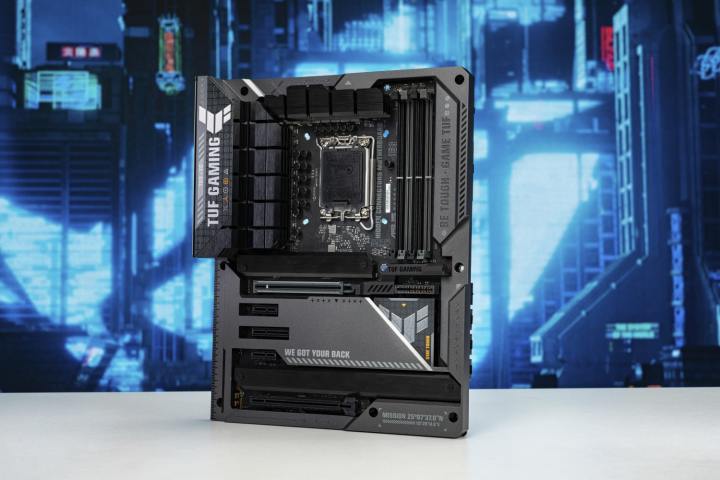
High-end Intel CPUs are about to lose some significant performance, according to a new report from BenchLife (via VideoCardz). The outlet claims Intel has sent guidance to motherboard partners to implement the Intel Default Settings on Z790 motherboards, following a wave of reports of instability on recent high-end Intel CPUs.
According to the report, these default settings will enforce a PL2 of 188 watts. Intel maintains power limits (PL) for its processors. PL1 is the base power, or the power that the processor can sustain for long periods of time. PL2 is the maximum boost power, which the processor can hit for brief spurts when under a heavy load.
The PL2 for the Core i9-14900K — the main CPU impacted by recent instability, it seems — is 253W. If the report is accurate, motherboard vendors will have to lower the default PL2 to 188W, vastly limiting the performance of high-end Intel CPUs. Gigabyte has already released an update enforcing a PL2 of 188W on the Core i9-13900K and Core i9-14900K, which results in upwards of a 20% reduction in performance based on testing conducted by Hardware Unboxed.
So far, Gigabyte is the only motherboard vendor to enforce this power limit. Asus has released a BIOS update that improves stability while keeping th PL2 set at 253W. It can result in up to a 9% performance drop, but it doesn’t impact gaming performance much. Meanwhile, MSI has released a guide for tweaking BIOS settings to improve stability, and both Biostar and ASRock has released beta BIOS updates with a baseline profile.

According to the report, Intel wants these BIOS updates released no later than the end of May. Intel has said it will make a public statement this month regarding the instability situation, but it has been careful not to blame motherboard vendors for the issues up to this point. Digital Trends has reached out to Intel for comment on the report, and will update this story when we hear back.
For now, only Gigabyte is enforcing a PL2 of 188W, and it’s unclear if other motherboard vendors will follow suit. Intel’s official specifications for the Core i9-14900K list PL2 as 253W. If the report is accurate, that has some very serious implications for Intel’s advertised specifications.
The report claims this will be the default setting for Z790 motherboards, though users are free to allow higher power limits through the BIOS if they aren’t experiencing instability issues. Up to this point, most Intel CPUs run in the “Extreme” power profile, which configures the settings for PL1 = PL2. In other words, it allows the processor to run at higher power limits for a sustained period of time.
According to Intel’s data sheet for 14th-gen CPUs, the Core i9-14900K can run in a Turbo or Extreme configuration. That runs the CPU at up to a sustained 253W or 320W, respectively. The base specification simply lists PL1 as 125W without any recommendation for PL2.
All major motherboard vendors have addressed the instability in one way or another. Although there clearly needs to be some distinction about what “default” means for both Intel and motherboard vendors, it’s hard to imagine Intel will limit the power of its high-end CPUs so radically. If that does end up being the case, perhaps the instability issues were more severe than previously thought.
Editors' Recommendations
- It’s time to stop ignoring the CPU in your gaming PC
- 4 CPUs you should buy instead of the Intel Core i9-13900K
- Everything we know about Lunar Lake, Intel’s big next-generation chips
- Intel’s big bet on efficient GPUs might actually work
- I’ve used Intel CPUs for years. Here’s why I’m finally switching to AMD




